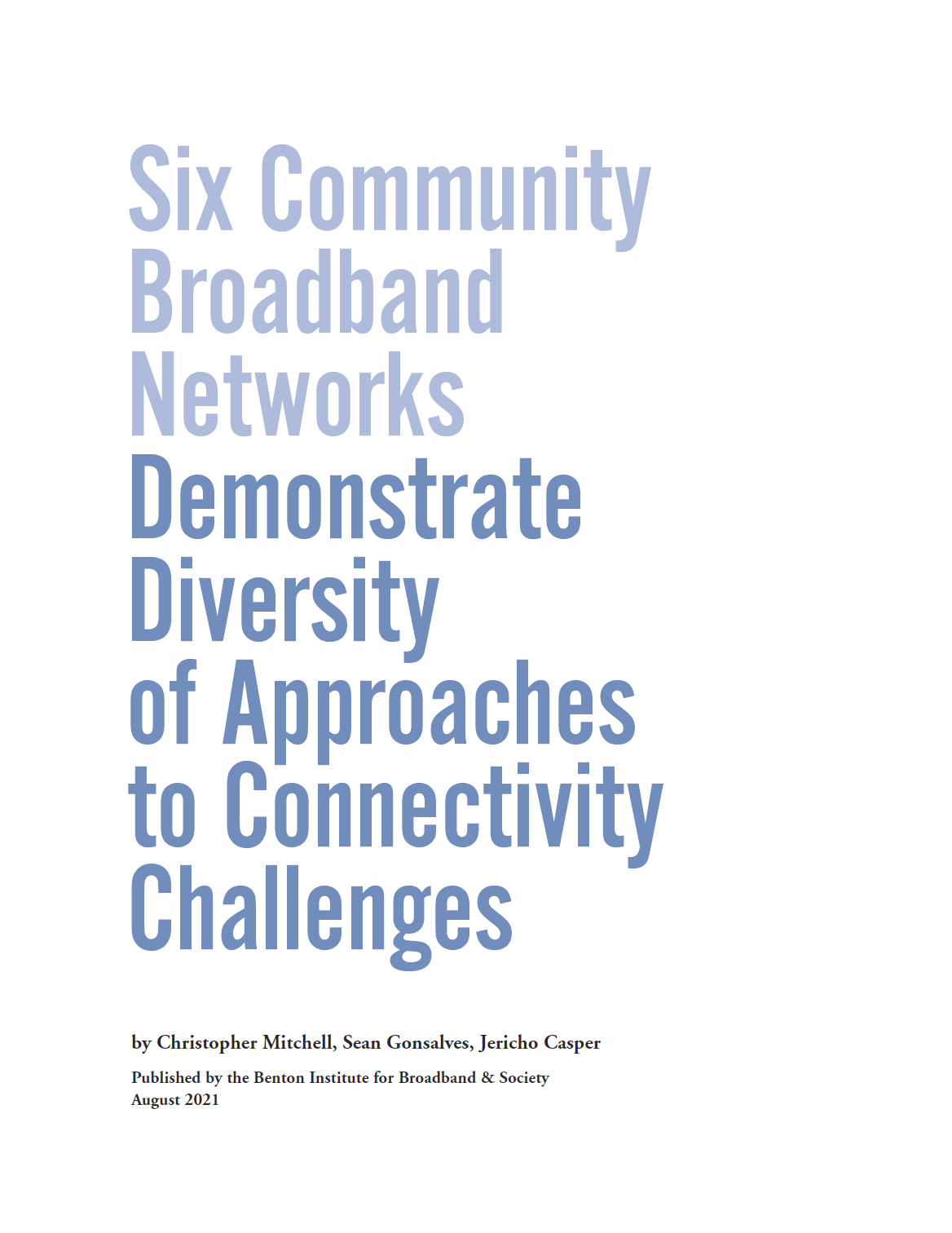Christopher Mitchell

Increased Wellness and Economic Return of Universal Broadband Infrastructure
This report examines 10 counties in rural Alabama, Georgia, and Mississippi to explore how the costs of achieving true digital equity—by extending robust broadband infrastructure into areas missing it—can be offset by utilizing the potential of telehealth to improve healthcare delivery. To do so, this report first identifies the most common health issues affecting residents in these 10 counties and draws on an academic scholarship to demonstrate the benefits that could come from effective telehealth interventions for each.
After Friday the 13th, a Failed Broadband Mapping Challenge Process
January 13, 2023 was a major milestone in the process of moving $42.5 billion from the federal government to states to distribute mostly to rural areas to build new, modern internet access networks. January 13th marked the deadline for error corrections (called challenges) to the official national broadband map that will be used to determine how much each state will get.
Former Sen. Heitkamp’s Attacks on Gigi Sohn for FCC are Wildly Off-Base
Gigi Sohn is still up for confirmation by the Senate to complete the Federal Communications Commission. I’ve known Gigi for many years and respected her from the first time I saw her in action. She isn’t a political agent trying to figure out the best path to the top. She has strong beliefs, and she’ll tell you what they are in a wonderful Long Island blur of passion. She respects other beliefs and ideas but she isn’t going to pretend she agrees with you when she doesn’t.
Treasury Improves Rules for Rescue Plan Aid for Broadband Networks
Communities across the United States have gotten an unexpected gift from the Biden Administration in the form of additional flexibility to use American Rescue Plan funds for needed broadband investments, particularly those focused on low-income neighborhoods in urban areas. When Congress developed and passed the American Rescue Plan Act, it tasked the Treasury Department with writing the rules for some key programs, including the State & Local Fiscal Recovery Funds (SLFRF).
Six Community Broadband Networks
One might think this is the moment for community broadband networks. The truth is, locally-directed networks have been serving their communities for a long, long time. In discussing his administration’s plans for broadband, President Joe Biden noted that municipal and cooperative networks should be favored because these providers face less pressure to turn profits and are more committed to serving entire communities.
One might think this is the moment for community broadband networks. The truth is, locally-directed networks have been serving their communities for a long, long time.


President Biden Proposes Government Actually Try to Create Broadband Competition
Most Republicans and many Democrats have framed broadband much like Ronald Reagan would: Get government out of the way, remove regulations, and let too-big-to-fail incumbent providers bridge the digital divide. A favorite target is public rights-of-way—every street plus about ten feet of land on each side where utility poles or underground utility lines are located, and where internet service providers attach or bury lines and equipment that transmit internet data.
How Telecom Monopolies are Blocking Better Internet Access, and What We Can Do About It
Monopoly control of high-speed internet access is leaving many Americans — particularly rural communities and communities of color — disconnected, underserved, or, at best, paying too much for substandard service. While community scaled internet service providers are more effective at delivering fast, affordable, and reliable Internet, monopolies, state-level regulations, and other factors stand in the way of these locally driven solutions to America’s broadband challenges. The report recommends a range of policy actions for improving broadband at the local level, including:
Rural Digital Opportunity Fund Auction Ends but Confusion and Corruption May Just Be Beginning
The Federal Communications Commission's Rural Digital Opportunity Fund (RDOF) auction results are a puzzle. The auction resulted in far more gigabit networks -- 85% of locations -- than anyone expected, at far lower subsidy than expected. However, there is a lot of frustration and confusion because it is not clear that some of the top bidders can deliver.

